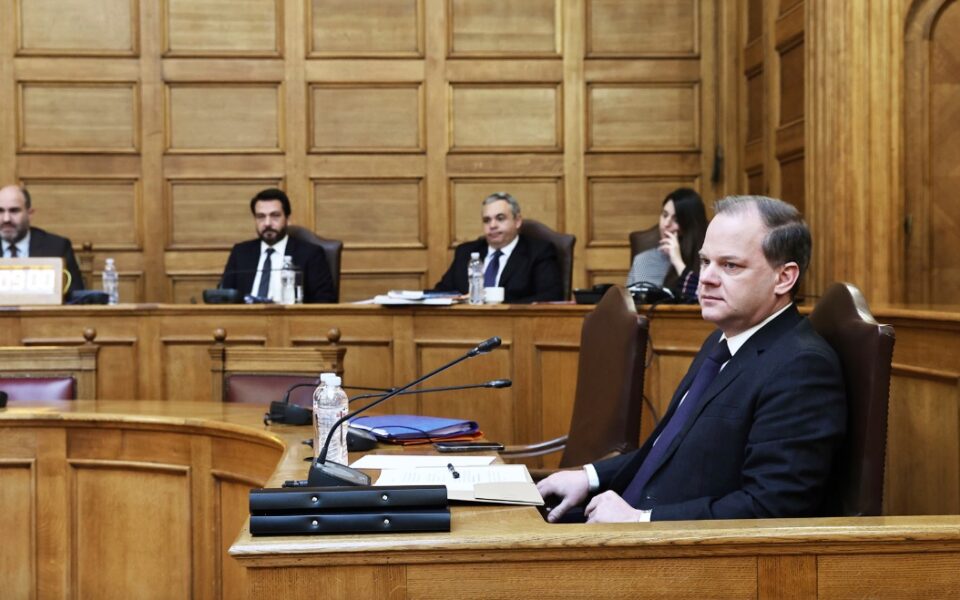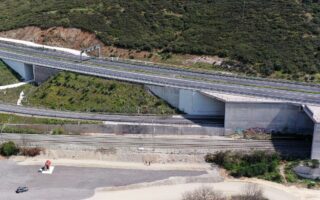Immunity hangs over rail crash case
Tempe disaster victim sues ex-minister; EU prosecutor hits at law making charges unlikely

A man injured in the Tempe train crash which killed 57 people on February 28, 2023, has sued then-transport minister Kostas Karamanlis, adding to an already heavy dossier of charges.
The findings of a parliamentary committee investigating the case, which ended in each of the seven parliamentary parties drafting its own report, will be discussed in a plenary session Wednesday, and the Karamanlis file, submitted by judicial authorities to Parliament because the charges are against an officeholder, is certain to feature prominently in what is shaping up to be an acrimonious debate.
The lawsuit against Karamanlis, who resigned as a minister the day after the disaster, and was re-elected as MP a couple of months later, alleges manslaughter with likely intent, compromising the safety of transport, resulting in grievous bodily harm and the harm itself.
But a law on “ministerial responsibility,” based on Article 86 of the Constitution, makes a prosecution very unlikely. Just 30 MPs are needed to file a motion to set up a fact-finding committee; but the setup must be approved by a simple majority in the 300-member chamber. And it appears at present unlikely that ruling New Democracy, which holds 158 seats, will vote for such a motion.
If, against all odds, such a committee were formed and found that the charges have merit, a special parliamentary investigative committee would take over and recommend whether the accused officeholder can be prosecuted. Again, a parliamentary vote is needed and the case to be transferred to the Judicial Council, a panel of five senior judges who can then decide either to dismiss the case or put the former officeholder on trial before a 13-member Special Court made up of 13 judges – seven from the Supreme Court and six from the Council of State, the country’s top administrative court, which decides whether laws are constitutional or not.
This complicated procedure, ostensibly designed to protect officeholders from constant and frivolous litigation, has effectively shielded them from more serious charges. The European Union’s chief prosecutor, Laura Kovesi, told Kathimerini in an interview that her office considers the law to be “in breach of EU regulations and law,” preventing a full investigation. But changing the law would require a constitutional amendment, a lengthy process that must take place over two successive parliaments.




